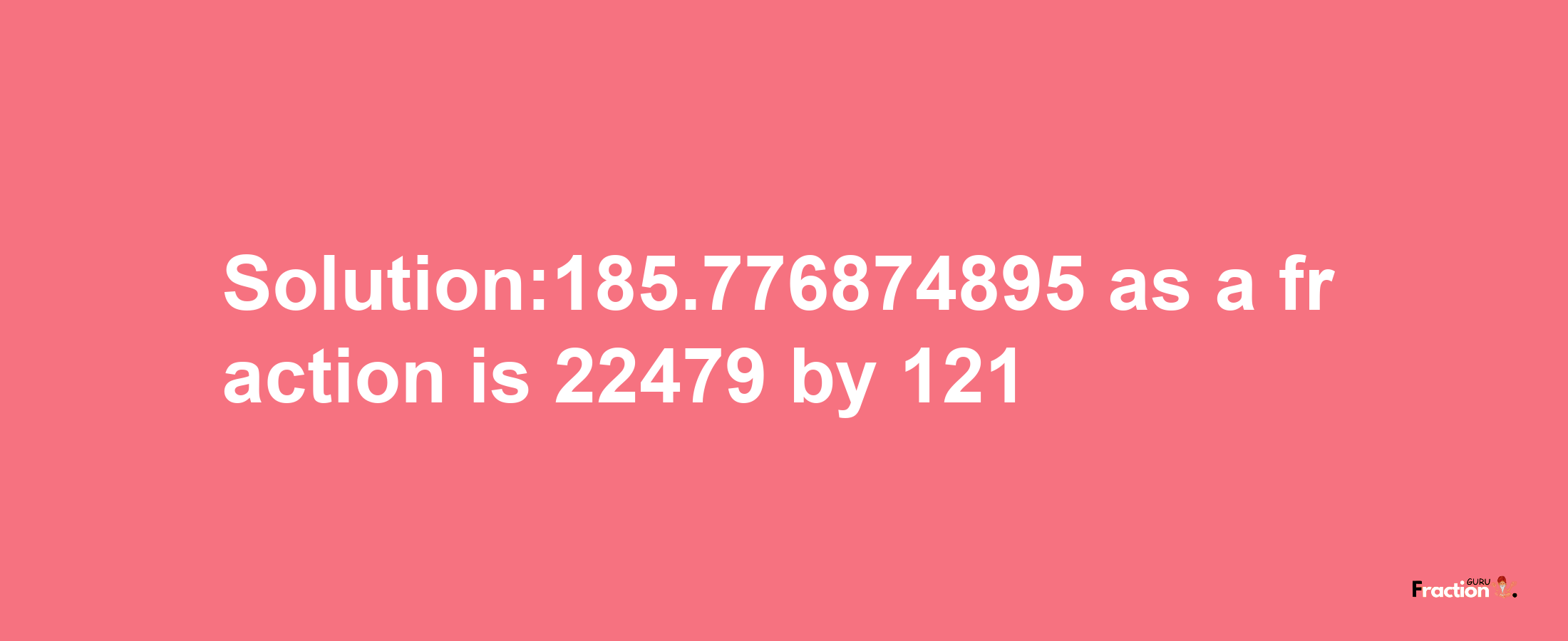Step 1:
The first step to converting 185.776874895 to a fraction is to re-write 185.776874895 in the form p/q where p and q are both positive integers. To start with, 185.776874895 can be written as simply 185.776874895/1 to technically be written as a fraction.
Step 2:
Next, we will count the number of fractional digits after the decimal point in 185.776874895, which in this case is 9. For however many digits after the decimal point there are, we will multiply the numerator and denominator of 185.776874895/1 each by 10 to the power of that many digits. So, in this case, we will multiply the numerator and denominator of 185.776874895/1 each by 1000000000:
Step 3:
Now the last step is to simplify the fraction (if possible) by finding similar factors and cancelling them out, which leads to the following answer for 185.776874895 as a fraction:
22479/121 / 1


